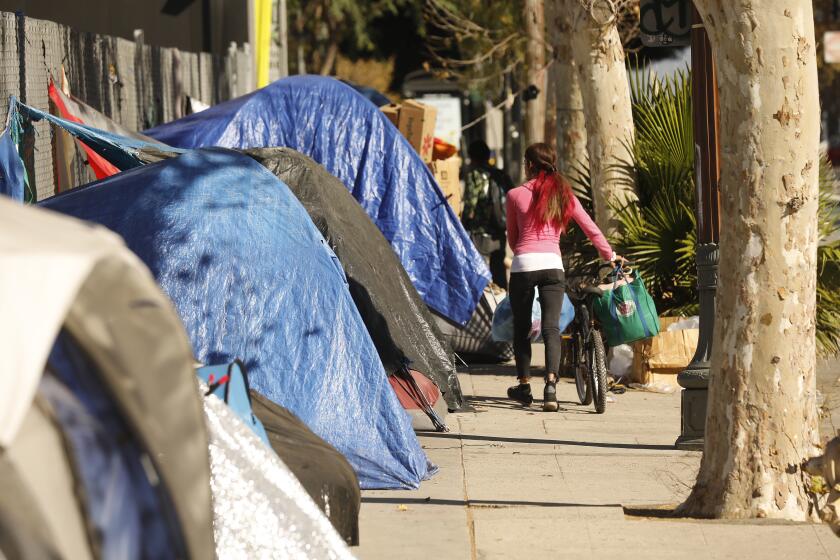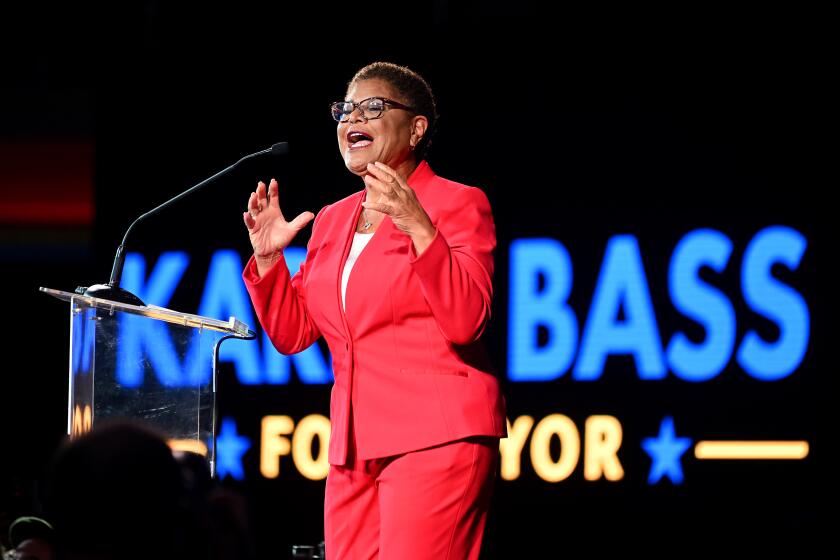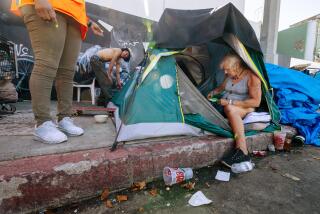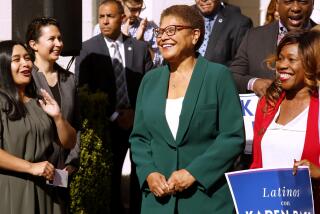Editorial: Measure ULA is the best gift Karen Bass could get as mayor
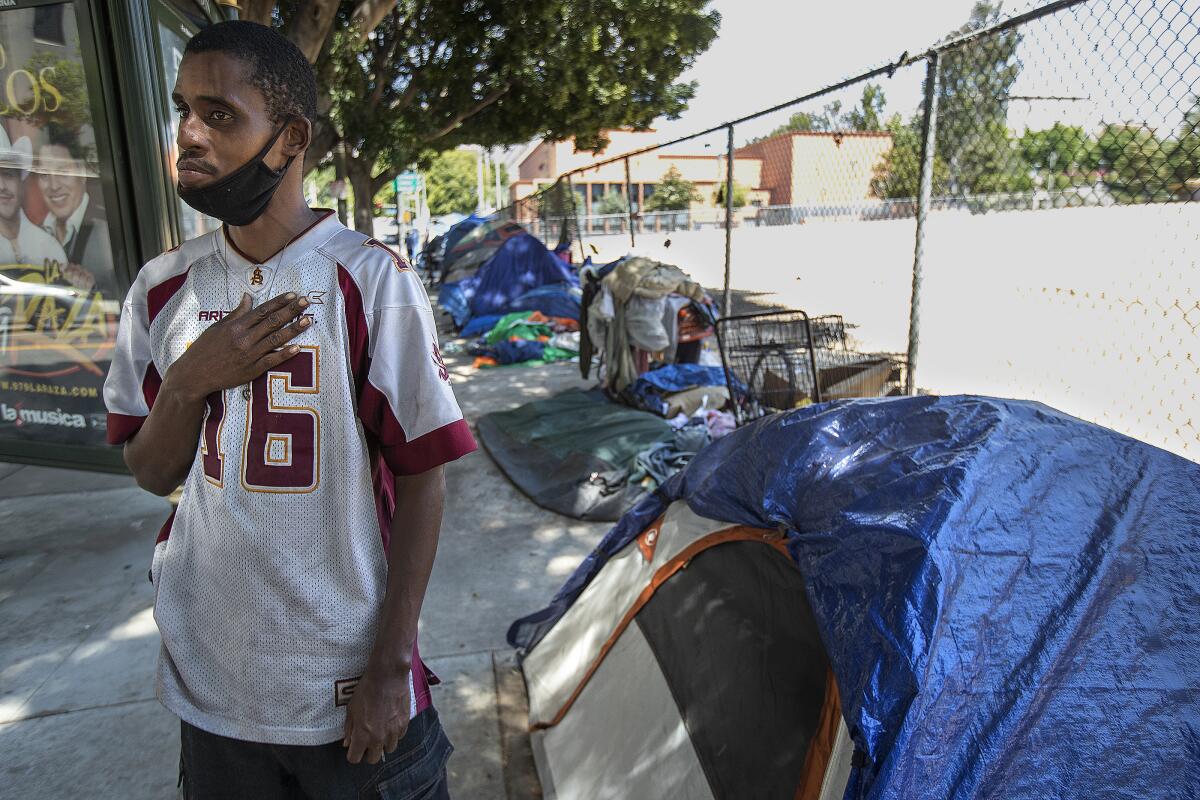
- Share via
Here are two heartening things that happened in the past few weeks: the passage of Measure ULA, which will provide hundreds of millions of dollars annually to build affordable housing and prevent homelessness, and the election of Karen Bass, a smart, experienced leader, as the next mayor of Los Angeles.
The United to House LA measure, which was put on the ballot by a coalition of housing advocates and labor unions, passed with around 57% support. The measure will increase the real estate transfer tax paid on properties sold for more than $5 million. Although Bass, as a candidate, never took a position on the ULA measure, it will be the greatest gift she could get as she takes office. Advocates for the measure estimate it could help fund 26,000 units of housing over a decade and, annually, provide rental assistance to thousands.
According to a just-released survey, city voters have given the mayor-elect a clear mandate to do whatever is necessary to succeed at the most daunting task she faces — substantially reducing homelessness in a city where 42,000 people were unhoused at the last count earlier this year and building more affordable housing for people living on the edge of homelessness.
Homeless numbers rose significantly less in the past two years. Experts say if we want them not to shoot up again, keep tenant protections in place.
Just as important, survey respondents said they were willing to have a homeless shelter or housing development in their neighborhoods and they were willing to limit community input on those projects. That’s a big change. In the past, communities have sometimes zealously mobilized to thwart projects or burden developers with time-consuming requests for changes. When asked if they would be willing to build an accessory dwelling unit on their property to address the general shortage of housing, slightly less than half said they would. Asked if they would rent a room to someone, 40% said yes. And a whopping 70% said that to address the housing shortage, they supported the building of apartments within a mile of their homes. Finally, residents have realized that the housing crisis is so severe that they’re willing to push aside their “Not In My Backyard” instincts.
They see the mayor as having primary responsibility for addressing homelessness, and they want Bass to act immediately once she takes office next month, according to the survey conducted by the Loyola Marymount University’s Thomas and Dorothy Leavey Center for the Study of Los Angeles. And nearly 61% of surveyed voters said if the mayor didn’t “effectively” address homelessness in her first two years in office they would support a recall effort.
The takeaway for Bass: The city needs more housing and voters say they support it. So build it, buy it, put it wherever it needs to be to get people who live on the street housed.
Bass will take the helm of a city in desperate need of leadership. She will need to quickly show residents that she’s in charge and ready to make change.
She follows in the footsteps of Mayor Eric Garcetti, who did a lot of that, but not at the speed or scale necessary. To be successful, Bass will need to accelerate all aspects of the housing development process, particularly for homeless housing. She can start by forcing city agencies — such as the Department of Water and Power and the Bureau of Engineering — to help developers of affordable housing and homeless housing quickly obtain permits and whatever else they need to finish construction.
As mayor, Bass will be responsible for implementing ULA. The measure dictates that about 70% of the funds be spent on housing construction and acquisition. The city’s Housing Department, which answers to the mayor, will make the final choices on projects under $50 million. Bass could prioritize housing projects that can be built quickly and at lower cost. She could stipulate that projects must be spread across the city, not concentrated in the low-income communities.
But most of all Bass must make it clear that the task of housing homeless people and enlarging the supply of affordable housing is an urgent one and she will remove all the hurdles that stand in the way. The voters have spoken and Bass has broad support to start solving the crisis.
More to Read
A cure for the common opinion
Get thought-provoking perspectives with our weekly newsletter.
You may occasionally receive promotional content from the Los Angeles Times.
